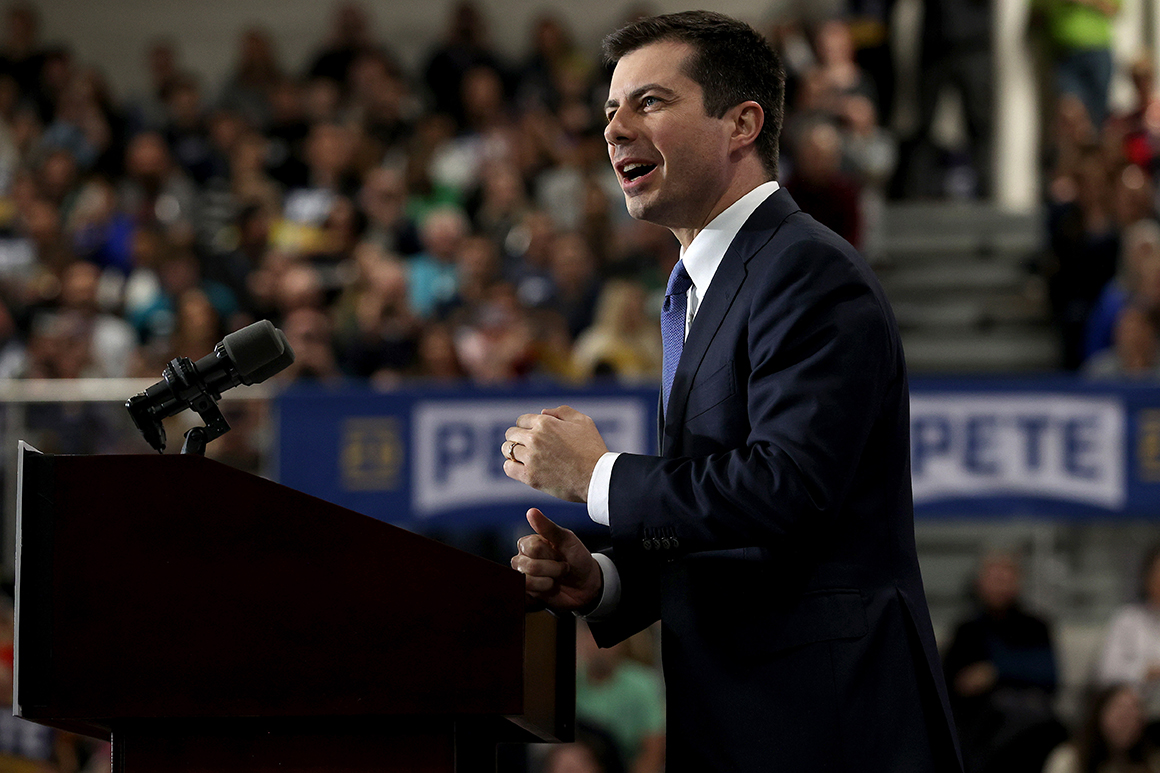
Buttigieg has been a frequent critic of Sanders and Warren in debates, lamenting their support for Medicare for All and Sanders’ identification with socialism. In the Nevada debate two weeks later, he called Sanders one of the two “most polarizing figures” in the Democratic primary, along with former New York City Mayor Mike Bloomberg.
“Most Americans don’t see where they fit if they’ve got to choose between a socialist who thinks that capitalism is the root of all evil and a billionaire who thinks that money ought to be the root of all power,” Buttigieg said.
Instead, Buttigieg pitched viewers on nominating a Midwestern standard bearer who could win back voters in the key states Trump painted red in 2016, a key piece of the appeal that saw him start the campaign as a little-known mayor of a city of about 100,000 people and end it with 26 pledged delegates to his name.
Buttigieg entered the presidential race quietly in January 2019, but by the spring he had leapt into the middle of the Democratic primary conversation after his answers at televised town hall events went viral, elevating him just as Democratic voters were starting to tune into the primary process.
Buttigieg’s campaign also became a touchstone for LGBTQ Americans. Buttigieg’s husband, Chasten, became a social media star and frequent presence on the campaign trail, and the two were featured together on the cover of Time magazine in 2019. Just last week, Buttigieg took a question at a campaign event from a young boy asking for help coming out. And after taking a lead in Iowa, Buttigieg reflected on the meaning of that moment for other gay people watching his campaign.
Buttigieg’s campaign spent much of the cash it raised building up to that finish in Iowa and his second-place showing in New Hampshire. But he didn’t receive the traditional post-Iowa fundraising bounce and media spotlight, with the state’s troubled caucus process leading to long delays reporting the results and disputes when the votes were finally counted.
Ultimately, it was Buttigieg’s longstanding trouble attracting support from voters of color that sapped his campaign of momentum. He was criticized as out of touch with the struggles of African Americans in South Bend while he was mayor there. And campaign missteps — including claiming endorsements for his “Douglass Plan,” his signature policy for black voters, that were disputed by the people his campaign listed — spread in the media as he tried to build new support.
Buttigieg acknowledged in January that it was „mostly white folks showing up“ when he campaigned in South Carolina. But he kept trying to break in through the end, holding small roundtables with black leaders in South Carolina through his last week on the campaign trail.
Carla Marinucci and Alex Thompson contributed to this report.
Source: politico.com
See more here: news365.stream






